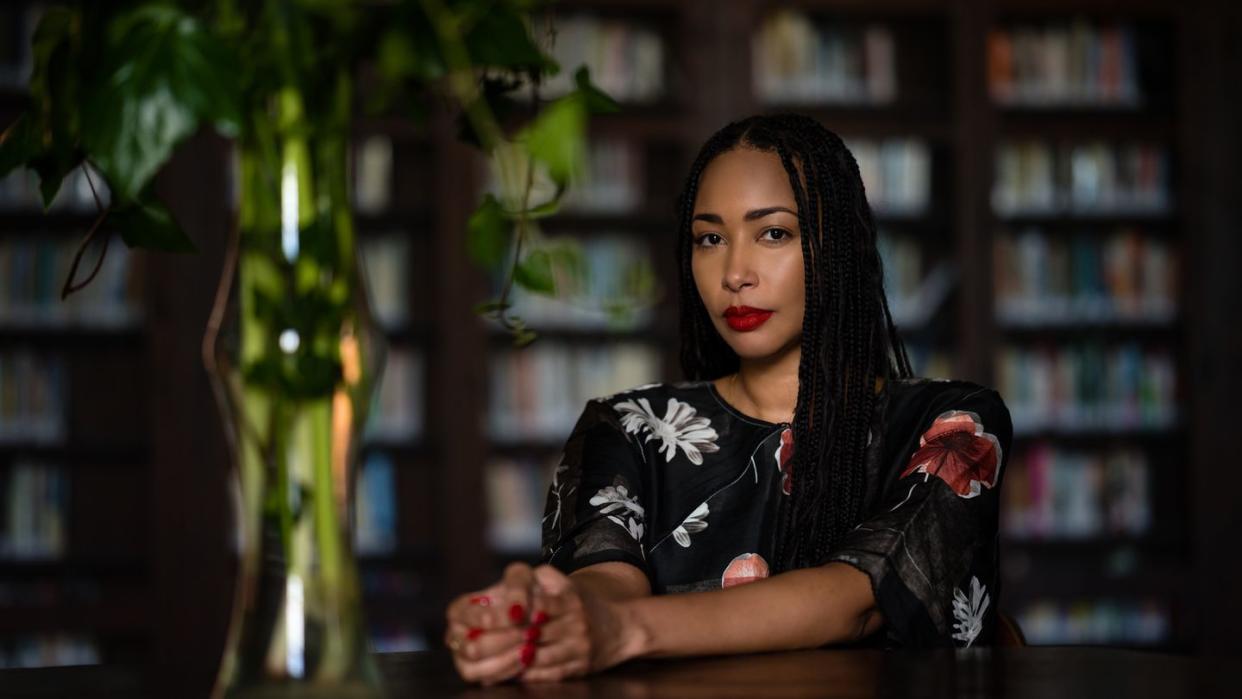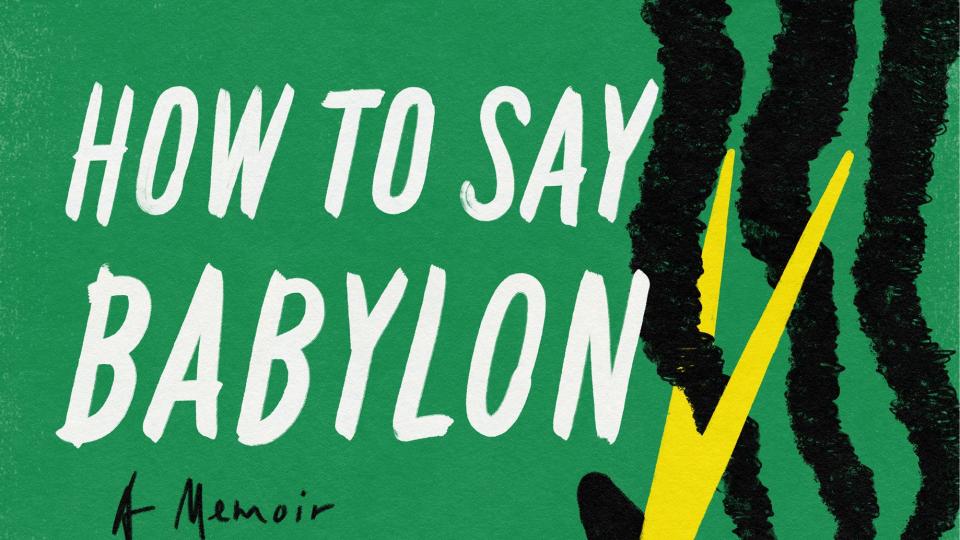Safiya Sinclair’s Escape Through Beauty

- Oops!Something went wrong.Please try again later.
Be chaste. Be pure. Be humble. When I was growing up as a young woman in a Rastafari household in Jamaica, these words ruled my waking days like a mantra. In my family, the terms of my worthiness and the sacredness of my body were a persistent and daily lesson. My understanding of the world tilted perilously on the idea of what kind of woman I should be, what kind of woman I should avoid. Each day I awoke, I imagined myself being judged on the measure of my womanhood—whether I was clean or unclean. Whether I was a Jezebel. I grew up cloistered in the idea that a woman’s virtue was determined solely by the idea of her purity, that the pinnacle of beauty in a woman was her humility, and that any desire I possessed was a moral failing. That vanity was the most reckless sin.
By the time I was nine, I already knew the worst thing a Rasta girl could be was a Jezebel. A Jezebel—she who is vain and unholy, she who adorns herself with makeup, with jewelry; a woman beguiled and befurred with all the wicked trappings of Babylon. A Jezebel looked into the mirror and saw not a sacred vessel for god or man, but only a flickering cosmos of herself. And for most of my childhood and adolescence, I believed it—that any beauty I coveted or longed for was vanity. That my body was a site of shame. And that any glimpse of her was to fall under the spell of immorality, the pull of Babylon.
Under Rastafari rules, my body had never been my own. The choices of what clothes I wore, what food I ate, and most particularly, how I wore my hair, were decrees handed down to me by my father. Rasta women were to dress modestly, in only long skirts and dresses, with their arms and knees covered. My sisters, my mother, and I were forbidden from wearing pants, jewelry, and makeup, and our hair was to be worn in dreadlocks, which was the sacred marker of Rastafari—the public signal that my body belonged to Jah. These were the symbols of purity. So, for a long time, under the banner of Rastafari, I shunned the mirror—even when I was a teenager, and the mirror was God. I became a shy young girl, shell-shocked by the rejection of my peers because I was Rasta, hunched under the weight of Rastafari’s strictures on my selfhood. I never believed my body was a gift. I burned away any notion of beauty, wanting to disappear completely.
Then, one sweltering afternoon in Montego Bay, by complete coincidence, while hauling my backpack of books, I was scouted by Deiwght Peters, the founder of Saint Models. I was 16. A friend of my mother’s had urged her to bring me to a casting call that was happening nearby, believing I had what it took to be a good mogeller, the Jamaican patois term for model. There, in the hush of the conference room, anointed by sunlight, with the sea wind in my ear, Deiwght Peters was the first person who held the mirror up to show me what dazzling beauty there was in simply believing in myself. A patron saint of Black beauty in Jamaica, Peters opened his modeling agency to celebrate the efflorescence of Jamaican beauty worldwide, and continues to launch the careers of many Jamaican models sweeping the world stage in a hurricane, including this issue’s own amazing cover model, Kai Newman. When he beckoned to me that day, and told me to smile into his Polaroid camera, it was the first time I felt truly seen.

With his help, I learned to stand tall and walk taller. I learned to put one foot in front of the other, to keep my head up, my eyes raised. To walk into every room and know myself. I began to go to model castings all over Jamaica, dressed in yards of silk, shining gowns, ruffles, pants, and makeup, a bright-spun vision of beauty. Soon, I became a verdant and golden creature with fluttering eyelashes, walking runways in puffs of glitter and bright perfume in the air, the sweet click of stilettos in my wake. Eventually, I was picked from the Saint lineup as a “Top Ten Fashion Face of the Caribbean.” The thrill of it struck me like lightning, a girl in some kind of origin story. It felt good to stand in the light, to reach out and touch her. I started to believe it then. Believe in that girl, in the flickering cosmos, my body’s luminescence.
I followed her, my dizzy star, into beauty. At 17, I arrived in the United States for the first time to visit modeling agencies in New York and Miami. There, in what we called “Foreign,” clutching my portfolio along with my nervous hopes, and my fragile snatches of her, I believed my dreadlocks would make me unique. I had never seen a model with dreadlocks. Stylists in Jamaica had mostly avoided the question of my hair, and left me to style it as I liked, which was usually tied back in my favorite gothic-black ribbon. But in America, my dreadlocks became a problem. For the first time, I was asked to cut them to keep modeling. The dreadlocks just “weren’t versatile enough,” they told me. And just as I had begun to believe, I now imagined my star falling. Severing my dreadlocks would be a permanent shedding of the sacred marker of Rastafari, and the first sign of my ruin.
My voice trembled as I picked up the phone and asked my father in Jamaica for permission to cut my dreadlocks. His answer came down righteous and swift: “No.” Suddenly, as a candle knocked down, there she went, thrown from the window of possibility. A snuffed flame. I watched her go: the girl I would never be, sashaying down the path of her own unknown future, as I went down the other. I accepted the rules and his decree like a good Rasta daughter. No matter how much I wanted it, I would not rebel. Not yet.
Soon after I returned from the U.S., I chose the path of a writer instead of a Rasta mogeller, but her beauty, her confidence, and her scorpion shock of verve never left me. I now know that my body is a gift. I will always know it. My femininity, my womanhood is something I will always declare, adorn, bejewel, and celebrate, instead of ever feeling diminished by it. My hair is my own, my body is my own. My voice is my own. Today, and every day, I walk tall and assured in every room because she is there. My muse, my beauty. My Jezebel.
You Might Also Like

